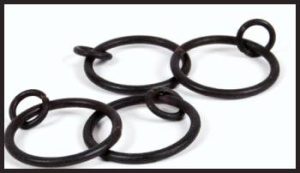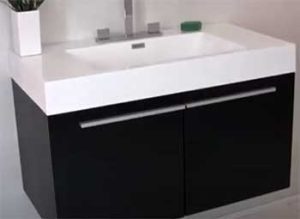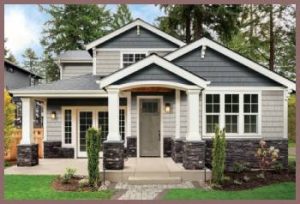Raphael Quartz is a brand that has captured the attention of homeowners and interior designers alike. Known for its exceptional quality and wide range of colors, patterns, and finishes, it’s easy to see why this brand has become a popular choice for quartz countertops.
In this comprehensive article, we will delve into the world of Raphael Quartz, discussing its pros and cons, and answering frequently asked questions about this fantastic material.
Pros of Raphael Quartz
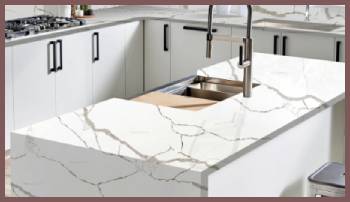
- Aesthetic Appeal
One of the main reasons people choose Raphael Quartz for their countertops is its stunning aesthetic appeal. The brand offers a wide range of colors and patterns, making it easy to find the perfect match for any interior design style. Furthermore, the patterns often mimic the appearance of natural stone, providing a luxurious and high-end look without the associated cost and maintenance.
- Durability
Quartz is known for its incredible durability, and Raphael Quartz is no exception. This engineered material is resistant to stains, scratches, and heat, making it an excellent choice for kitchens and bathrooms. Its non-porous surface means it doesn’t harbor bacteria or require sealing, making it a hygienic and low-maintenance option for busy households.
- Versatility
Raphael Quartz is available in a variety of thicknesses and edge profiles, providing plenty of options for customization. This versatility makes it suitable for a range of applications, including countertops, backsplashes, and even flooring. Additionally, its consistent color and pattern make it easy to match slabs, ensuring a cohesive and seamless look throughout your space.
- Environmentally Friendly
Raphael Quartz is an eco-friendly choice for those who prioritize sustainability. The manufacturing process involves the use of recycled materials, and the finished product is recyclable. Plus, its durability means it’s likely to last for decades, reducing the need for replacement and the associated environmental impact.
Read More: About Metroquartz
Cons of Raphael Quartz
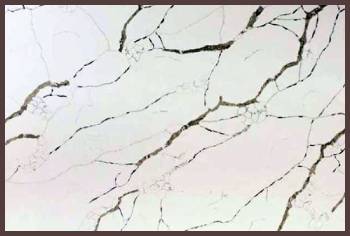
- Cost
One of the main drawbacks of Raphael Quartz is its cost. While it’s more affordable than natural stone options like granite and marble, it’s still more expensive than laminate or solid surface countertops. However, its durability and low maintenance requirements often justify the higher price tag for many homeowners.
- Not Heatproof
While quartz is heat resistant, it’s not entirely heatproof. Prolonged exposure to high temperatures or placing hot pots and pans directly on the surface can cause discoloration or damage. To avoid this, it’s essential to use trivets or hot pads when placing hot items on your Raphael Quartz countertops.
- Limited Outdoor Use
Quartz countertops, including Raphael Quartz, are not recommended for outdoor use due to their limited UV resistance. Prolonged exposure to sunlight can cause the colors to fade and the material to degrade over time. For outdoor applications, consider alternative materials such as granite or concrete.
Read More: Comparison Between Perla Venata Quartzite And Taj Mahal
Frequently Asked Questions (FAQs)
Yes, Raphael Quartz is a high-quality, durable, and aesthetically pleasing material that’s perfect for countertops, backsplashes, and other applications. Its wide range of colors and patterns makes it a versatile option for various design styles, and its durability ensures it will stand up to the demands of everyday use.
The best quality quartz will depend on your specific needs and preferences. Brands like Raphael Quartz, Caesarstone, Silestone, and Cambria are all well-regarded for their quality and durability. It’s essential to consider factors such as color, pattern, and price when selecting the best quartz for your project.
Several quartz brands offer realistic patterns that mimic natural stone, including Raphael Quartz. Other brands to consider include Caesarstone, Silestone, and Cambria, all of which provide designs that closely resemble granite, marble, and other natural stones. When choosing the most realistic quartz brand, consider factors like pattern variation, veining, and color depth to ensure the closest match to your desired natural stone look.
To determine the quality of quartz, consider the following factors:
Brand reputation: Reputable brands like Raphael Quartz, Caesarstone, Silestone, and Cambria are known for producing high-quality products.
Color and pattern consistency: Good quality quartz should have consistent color and pattern throughout the slab.
Warranty: A comprehensive warranty from the manufacturer is a strong indicator of a high-quality product.
Surface finish: High-quality quartz should have a smooth, polished surface without visible imperfections or irregularities.
The price of quartz can vary depending on factors such as color, pattern, and brand. Generally, the most expensive quartz options are those that closely resemble rare natural stones like Calacatta marble or unique patterns with intricate veining. Brands like Cambria and Caesarstone often have premium collections with higher price points, but Raphael Quartz also offers some high-end options.
Quartz countertops are generally categorized into three grades based on quality and price:
Entry-level or builder-grade quartz: This grade is the most affordable option and typically features more basic colors and patterns. While still durable and low-maintenance, these options may not have the same level of aesthetic appeal as higher-grade quartz.
Mid-grade quartz: This grade offers a balance of quality and affordability, featuring a wider range of colors and patterns than entry-level quartz. Mid-grade quartz still provides excellent durability and low-maintenance characteristics.
Premium or designer-grade quartz: The highest grade of quartz, this category includes the most realistic and intricate patterns, as well as unique and rare designs. Premium quartz typically comes at a higher price point but offers unparalleled aesthetic appeal and exceptional quality.
Wrapping Things Up
In conclusion, Raphael Quartz has plenty to offer in terms of aesthetic appeal, durability, and versatility. While it comes with a higher price tag than some alternatives and has a few drawbacks, its benefits often outweigh the downsides for many homeowners.
By understanding the pros and cons of this popular material, you can make an informed decision on whether Raphael Quartz is the right choice for your next home renovation project.

